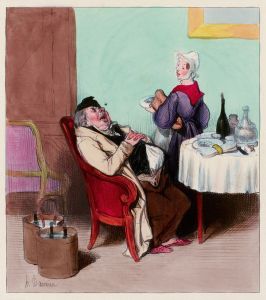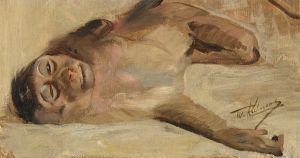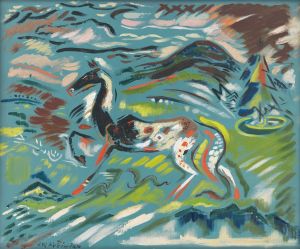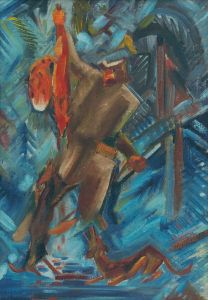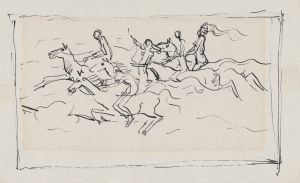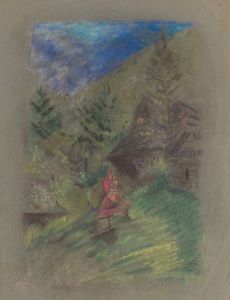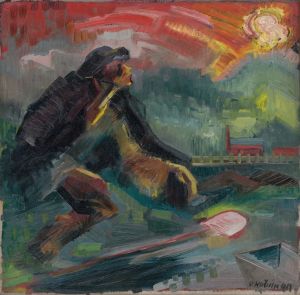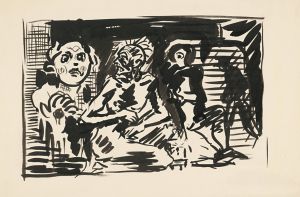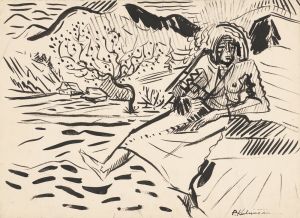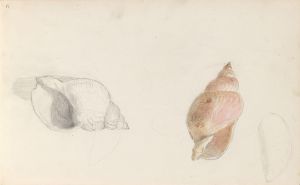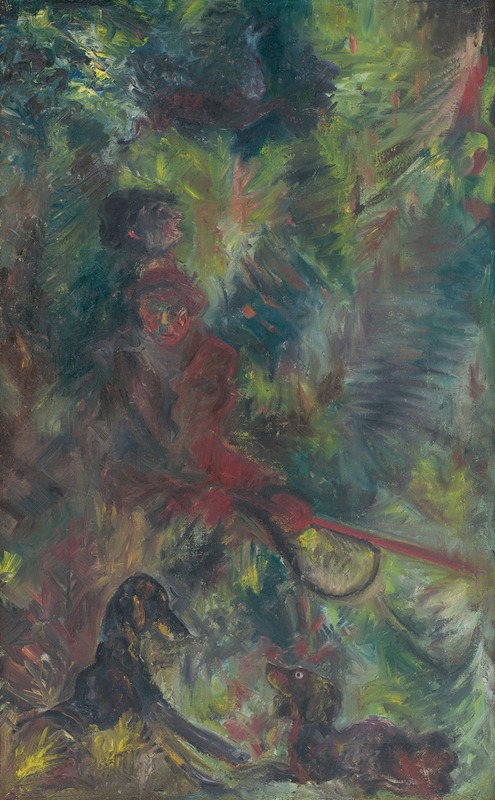
Poachers
A hand-painted replica of Arnold Peter Weisz-Kubínčan’s masterpiece Poachers, meticulously crafted by professional artists to capture the true essence of the original. Each piece is created with museum-quality canvas and rare mineral pigments, carefully painted by experienced artists with delicate brushstrokes and rich, layered colors to perfectly recreate the texture of the original artwork. Unlike machine-printed reproductions, this hand-painted version brings the painting to life, infused with the artist’s emotions and skill in every stroke. Whether for personal collection or home decoration, it instantly elevates the artistic atmosphere of any space.
Arnold Peter Weisz-Kubínčan was a Slovak-Jewish painter born in 1898 in the Austro-Hungarian Empire, in what is now Slovakia. He is known for his modernist works that often explored themes of human existence, spirituality, and the natural world. His art was heavily influenced by the avant-garde movements of the early 20th century, including Expressionism and Cubism. Tragically, his career and life were cut short during the Holocaust, as he was murdered in 1944.
One of his notable works, Poachers, reflects his distinctive style and thematic concerns. The painting is characterized by its bold use of color, dynamic composition, and a sense of tension that captures the precarious relationship between humanity and nature. The subject of poaching, as depicted in the artwork, may symbolize the exploitation of natural resources or the moral ambiguities of survival. The figures in the painting are rendered with angular forms and dramatic contrasts, which are hallmarks of Weisz-Kubínčan's approach to modernist art.
Weisz-Kubínčan's works, including Poachers, are relatively rare due to the destruction of much of his output during World War II. Many of his paintings were lost, and only a limited number survive today. These surviving pieces are highly valued for their artistic merit and as a testament to the cultural contributions of Slovak-Jewish artists during a turbulent period in European history.
The exact date of creation for Poachers is not documented, but it is believed to have been painted during the 1930s or early 1940s, a period when Weisz-Kubínčan was actively producing works that combined modernist techniques with deeply personal and philosophical themes. Today, his surviving works are preserved in museums and private collections, serving as a poignant reminder of the artist's talent and the cultural losses inflicted by the Holocaust.
Due to the limited availability of detailed records about Poachers, further specifics about its provenance, exhibition history, or critical reception remain unclear. However, the painting continues to be appreciated as an example of Weisz-Kubínčan's innovative and emotive artistic vision.





